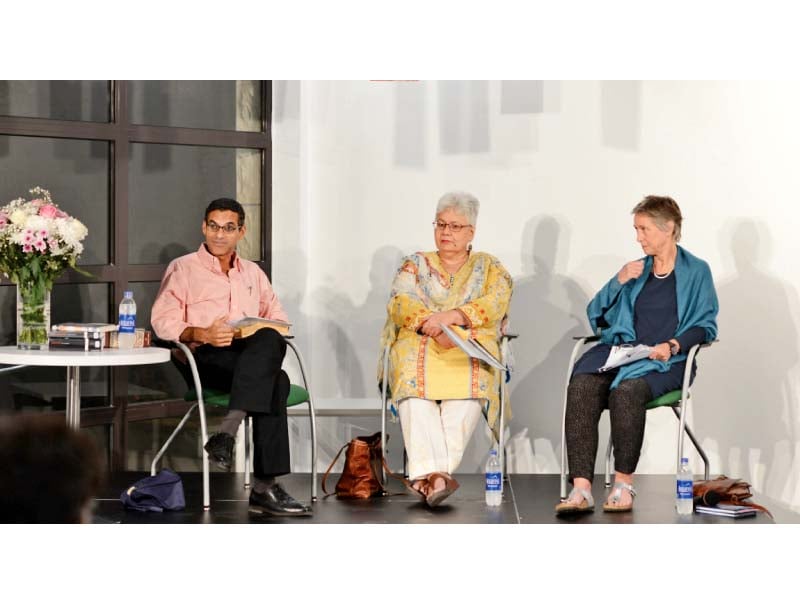
The event is part of a global initiative, #ShakespeareLives, to renew the youth’s interest in the playwright.
Habib University’s programme director of communication studies and design and moderator for the event Dr Framji Minwalla began the session by explaining the link between Shakespeare’s popularity and the restoration of the British monarchy in the 17th century.
Four short films were then shown to an enraptured audience of students and literature enthusiasts. The films, all made by upcoming young artists, were adaptations of The Tempest, Hamlet, Julius Caesar and As You Like It. Part of their appeal was that while one film featured word-for-word dialogue, another used parts of a soliloquy to create a song. The videos are all available online, according to Rosemary Hillhorst, country director of the British Council, Pakistan.
“The motive behind the #ShakespeareLives2016 initiative is to look at Shakespeare and what he means to new artists today and to reimagine what he means to you,” she said. These three-minute long videos are meant to catch the attention of young mobile users who have short attention spans and even less time, she explained. “Even after 400 years, the themes Shakespeare wrote about are still relevant.”
“We wanted to celebrate year-round,” she said, adding that Shakespeare deserves more than just one day, April 23 which is both the day he was born and died on.
Lynette Viccaji, a literature teacher at Cedar College, said that the problem with Shakespeare and the study of his work is his greatness. “Once you have canonised someone you stop looking them in the eye and you begin to look up at them from a kneeling position,” she said, urging teachers to bring Shakespeare back to earth.
“Only by taking Shakespeare down from his pedestal can the true depth and complexity of his work be appreciated,” said Viccaji. His work may be considered ‘highbrow’ now, but she said that in Shakespeare’s time this was certainly not so; his work appealed to everyone, from butchers and kings alike. Students might need help understanding his language at times, but once they do, they will be immersed in a magical world, she concluded.
Dr Minwalla explained that Shakespeare’s work is meant to be watched, adding that the three-quarter stages used to perform his works in the 17th century were made in a way that allowed actors to recite soliloquies and asides directly to the audience, instead of into the air. His work is tailored for the stage, he said, adding that many of the difficulties people have with Shakespeare’s work disappear when they watch his plays being performed. “This tells us a lot about Shakespeare, that he was a product of the theatre, that he learnt his craft in the theatre and wrote for the theatre,” he said. “Language in performance makes sense while language on page doesn’t always make sense,” Dr Minwalla added.
The speakers related the bard’s plays to today, comparing Julius Caesar to Pakistan’s military coup in 1999 and Anthony and Cleopatra to Imran and Reham Khan’s short, tumultuous marriage.
Published in The Express Tribune, October 30th, 2016.



1732263441-0/BeFunky-collage-(81)1732263441-0-165x106.webp)
1732263755-0/musk-(3)1732263755-0-165x106.webp)












COMMENTS
Comments are moderated and generally will be posted if they are on-topic and not abusive.
For more information, please see our Comments FAQ